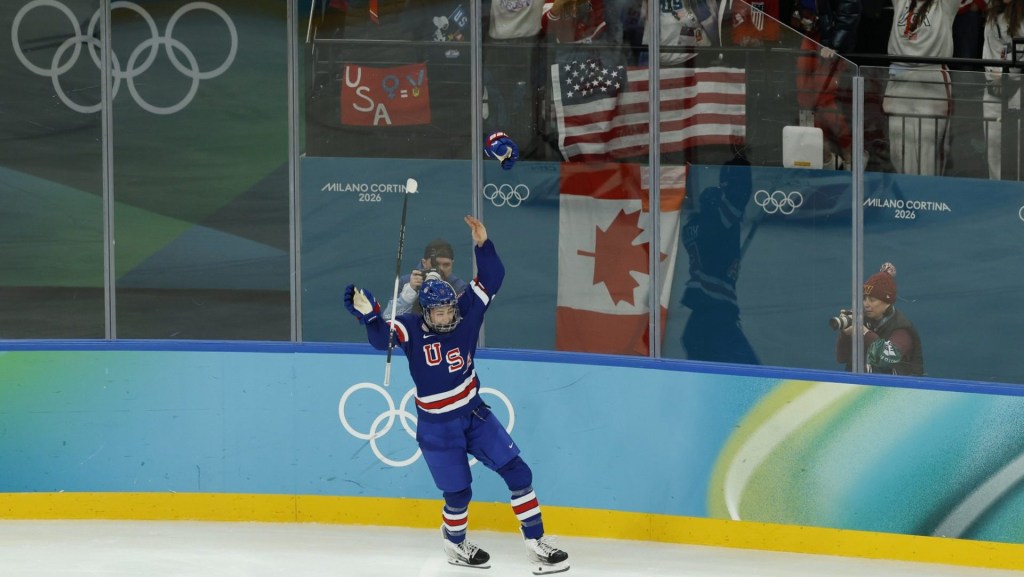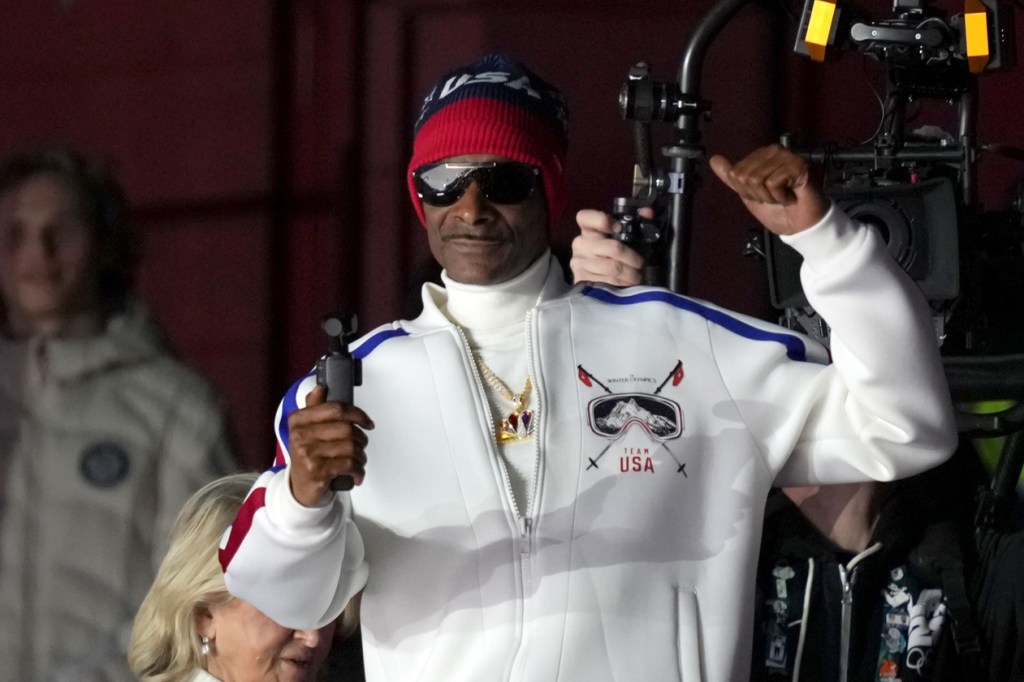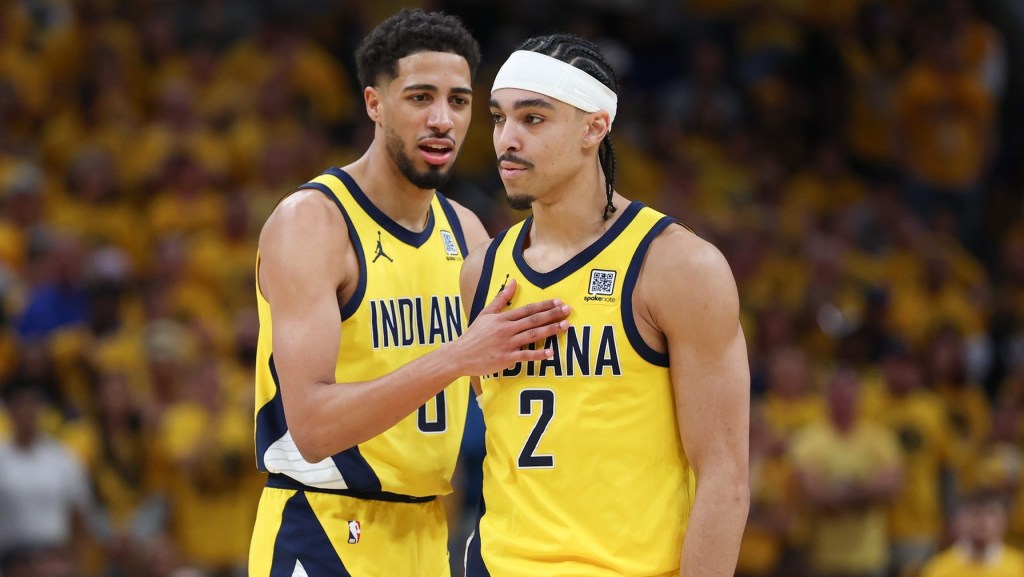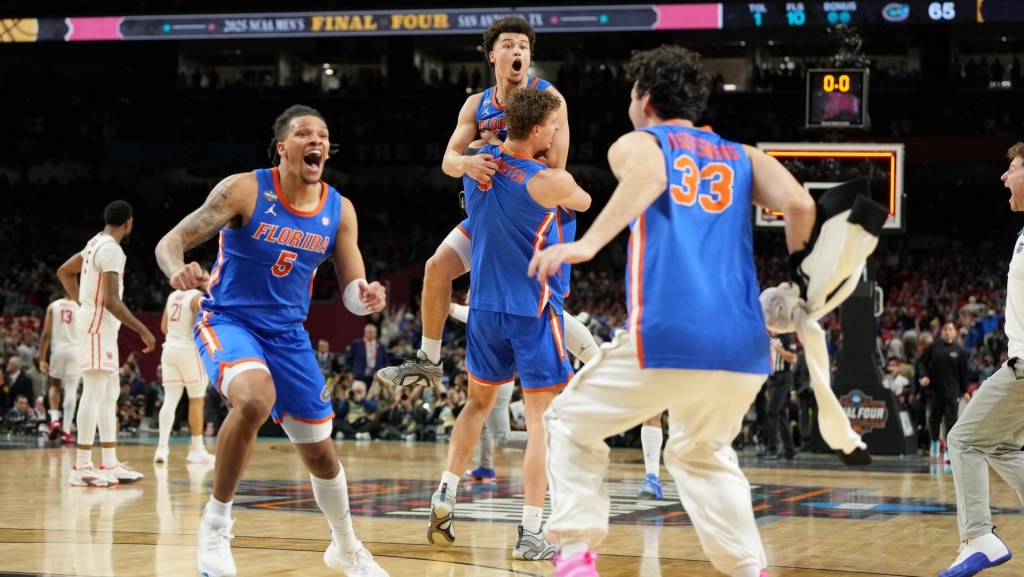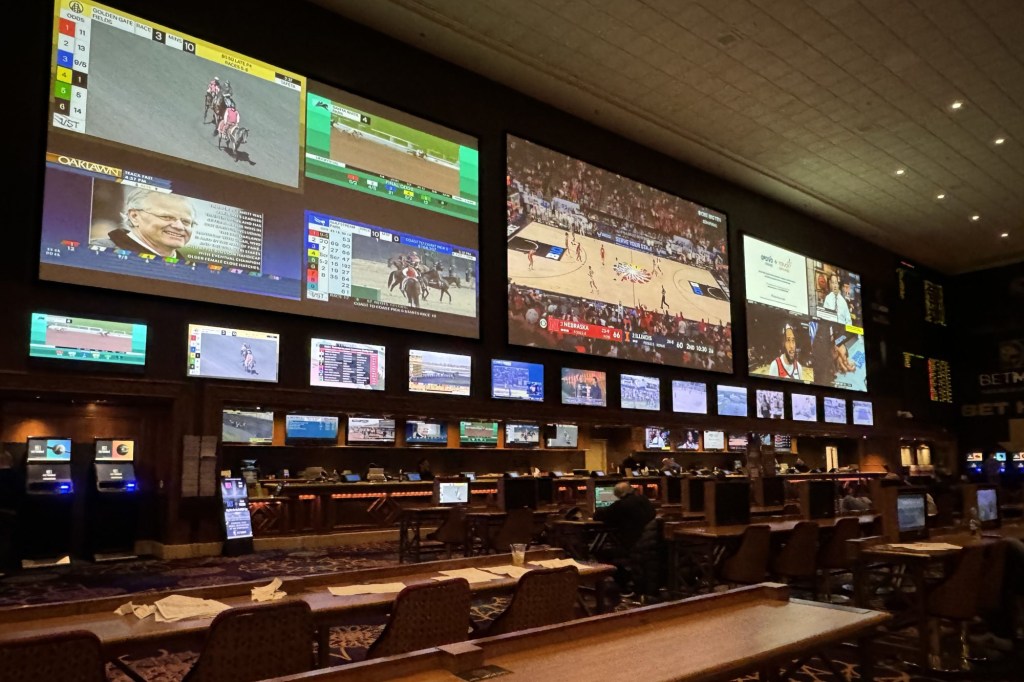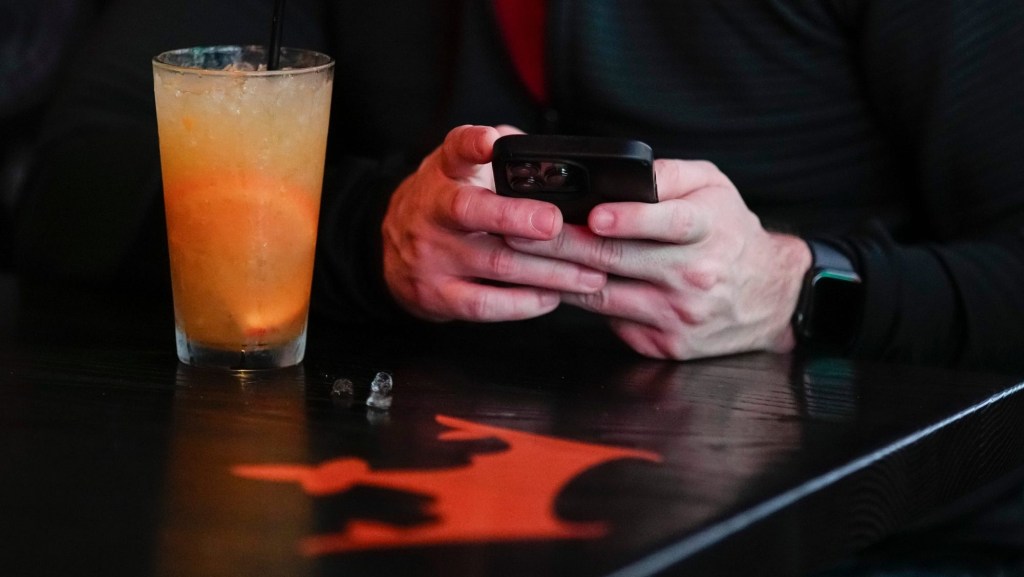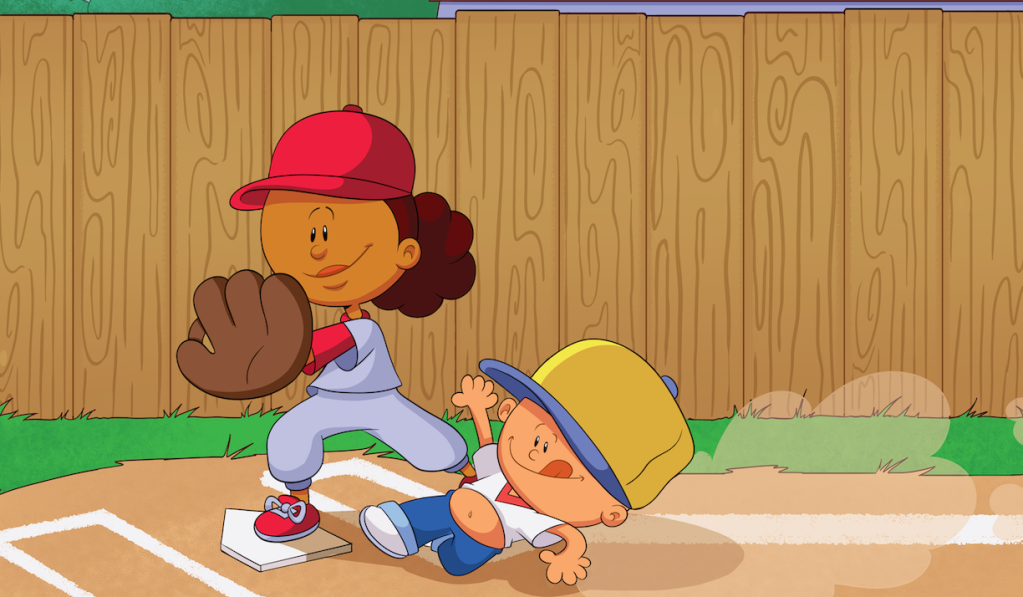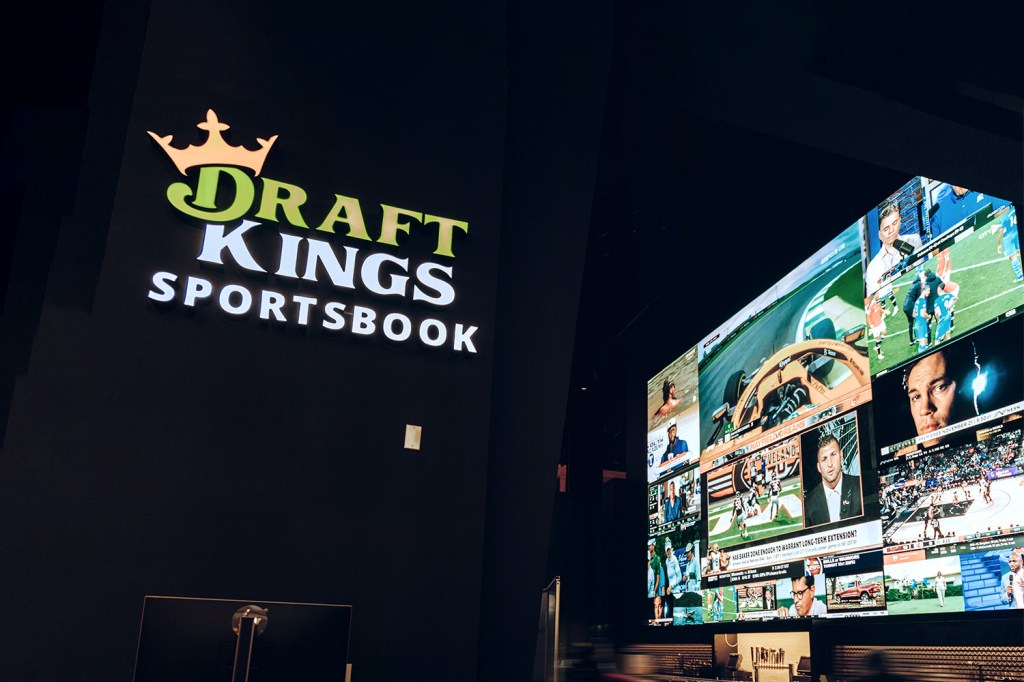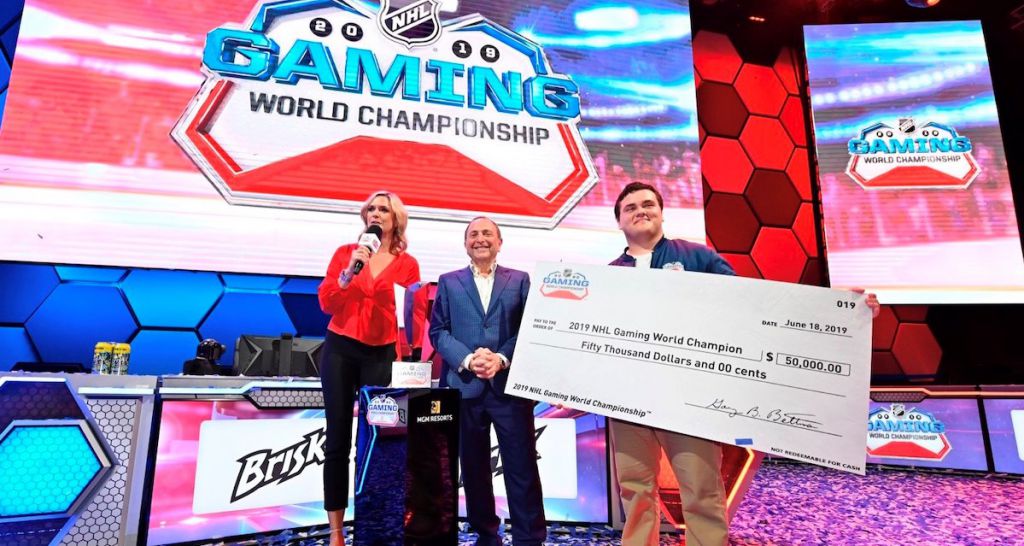
NHL executives, including Commissioner Gary Bettman, are pleased with the first two years of the league’s esports endeavor. Now, there are high hopes for the future, which could include a league-wide tournament in addition to its global competition.
Between more than doubling viewership over its first season and nearly doubling sponsorship, league executives envision not only fostering a younger fanbase through esports, but also eventually generating a steady revenue stream.
“We understand the importance of esports to millennials and especially Gen Z,” Bettman said. “This is another way to connect with our game. This is striking a chord and is resonating with people who are looking to connect with hockey through our video game.”
READ MORE: NASCAR Builds on Deep Esports Roots with Second League
Viewership was up across the board for the 2019 edition of the NHL Gaming World Championship. The final event in Las Vegas drew 632,907 unique viewers on Twitch, up 190.3% percent over last year’s 218,038. The regional finals also grew at a high pace, with the European Union finals up 3,240% with 434,348 viewers, Canada finals up 882% with 442,748% and the U.S. up 106% at 548,478. Most other metrics were up similarly, according to Twitch data supplied from the NHL. The final also drew a maximum concurrent viewership of more than 68,000 against last year’s 28,124, with an average of 43,824. That is up 178.4% from last year’s average of 15,740.
Bettman tends to believe NHL fans are younger and more tech savvy than other leagues and therefore more eager to jump into the esports realm. If that’s how the younger generations want to learn the game of hockey, that’s more than acceptable with the league, said Chris Golier, NHL vice president of business development and global partnerships.
“Much like the NHL, it’s a very passionate player base centered around hockey as a sport and that’s exciting for us since the average age is younger,” Golier said. “This is a touch point. If a fan’s going to learn the game, the players through video games, so be it. The fact is, they’re engaging with us.”
Without league directive, 22 of the league’s 31 clubs held local tournaments this season — a number Golier expects to grow in the near future. While the league didn’t tell teams to put on events, they did provide framework and assistance where needed and will hope to grow the club participation. Golier noted the owners of teams like Tampa Bay, Washington and Boston have also made significant investments into the realm of esports. For other teams, the league provides industry insight and guidance.
“Like every league, you have some teams that are very advanced,” Golier said. “Other teams are raising their hands saying, ‘We know we want to get in this, but we need a little bit of help.’We want to create a format ultimately that incorporates all the clubs, but we’re in this test and learn phase right now, figuring out formats doing things locally and creating content for engagement.”
Right now, a major focus is creating content around the stories within the esports world, like what the league did during the All-Star Break with its House of Chel activation. The league put five gamers, including Minnesota Wild forward J.T. Brown, in a $100 million Silicon Valley mansion during the January weekend.
Golier said going for the lifestyle content rather than just hardcore gamers is key to the league’s strategy in the long run.
“Esports is about the personalities and we know that it’s storytelling, just like Doc Emrick and NBC Sports – it’s a storytelling exercise,” he said. “We need to get the content constantly with our league events and clubs, we want a full schedule that goes throughout the year. It’s aggressive – content is expensive to produce – but we’re getting there.”
The NHL foresees a time when there’s a strong revenue flow through the esports channel, evolving beyond being just a vehicle for nurturing a fanbase. The first year of the NHL Gaming World Championships had five sponsors. This year that number increased to eight, including Adidas, Brisk, Honda and Great Clips.
“We wouldn’t do it if we didn’t think there was a revenue stream to attack,” Golier said. “We’ve got great partners who aren’t just there for logo slaps, but want to be part of the community and ad value. That’s near term, long term we want to be able to fill a place like this and sell tickets.”
The NHL seems to be fairly loose with its goals for its esports initiatives, but Golier is excited about its potential. Until the next season of the NHL Gaming World Championship gets underway, there’s plenty of time to reflect on what’s next.
READ MORE: Here to Stay: Generation Z’s Impact On Sports Content Strategy
“We need to take a look at what we did right and what we did wrong, definitely some things we’d do differently,” Golier said. “EA has a been a great partner, and we’ll be meeting with them over the next couple of weeks. Content will drive what we do in the future, but the events have been great with prizes and prestige for the players.”
While Bettman might not be in the target demographic for esports — he brought his grandson to the tournament — he’s realized the importance of evolving the league’s strategies. Earlier in the same day at the NHL’s diversity summit, Bettman said it’s important to realize one “can’t live by you were doing 25 years ago, 10 years ago, even last week.” At the NHL World Gaming Championship, he said he’s seeing results and recognizes the way forward in esports likely is more.
“The numbers are very strong. Are they Fortnite numbers? No, but I’d put them up against any of the other major sports and that’s very gratifying,” Bettman said. “We’ll do more and more and envision all our clubs involved in a league-wide tournament in addition to the things we’re already doing worldwide.”
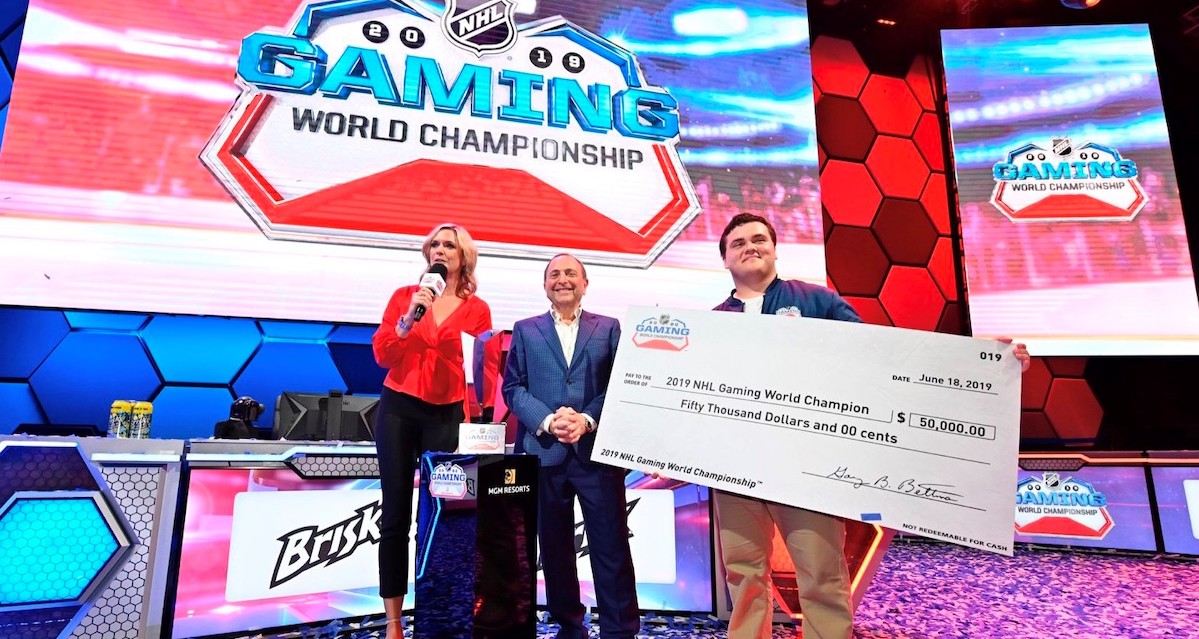
![[Subscription Customers Only] Jul 13, 2025; East Rutherford, New Jersey, USA; Chelsea FC midfielder Cole Palmer (10) celebrates winning the final of the 2025 FIFA Club World Cup at MetLife Stadium](https://frontofficesports.com/wp-content/uploads/2026/02/USATSI_26636703-scaled-e1770932227605.jpg?quality=100&w=1024)

